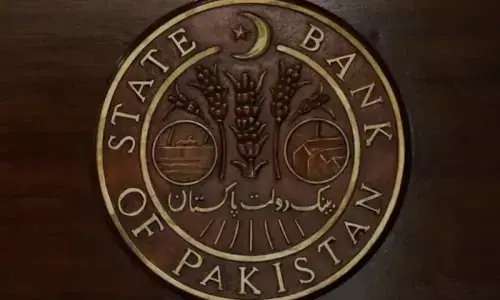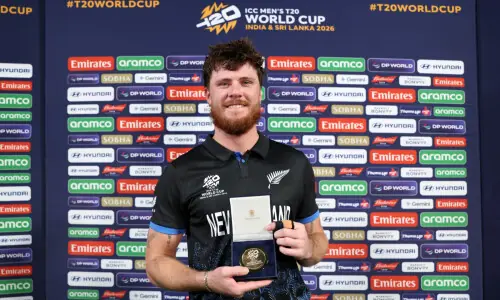Communication skills improved over time, from graphic exchanges of pictures to the creation of the alphabet, leading to the emergence of reading and writing skills. Today we communicate through the electronic media, using sophisticated instruments, such as fax and telex machines, computers, television, mobile phones, the Global Positioning System (GPS) installed on seaborne vessels, and much more. Thus the acquisition of speech and language is considered a dynamic skill innate to the human species. However, it is easily influenced by environmental, social, cultural, parental, and biological parameters.
The sad truth we faced in Pakistan until a few years ago was the absence of nationally-qualified professionals in the field of Speech Language Pathology to work with children and adults with communicative impediments and swallowing disorders.
A survey conducted in Karachi to gauge the number of those affected elaborated the picture. It concluded that an estimated over 22 million individuals in an overall population of over 160 million suffered from speech, language, swallowing and/or hearing disorders. At present there are only seven qualified Speech Language Pathologists/Therapists (SLPs/SLTs) all of whom have qualified abroad to cater to the needs of these 22 million individuals across the nation.
All of these seven SLTs/SLPs worked in private hospitals and clinics with a staggering caseload humanly difficult to cope with. They conducted short training programmes for special educationists and parents, which proved to be inadequate for the needs of the patients across the country. An extensive degree course was staunchly needed as an attempt to begin to fill the vacuum of qualified SLTs.
Realising the gravity of this scenario, stalwarts from the field of Pediatrics Dr A.G. Billoo NI, Dr Nargis Khan and Dr Habiba Hasan, Neurologist Dr Najam Sheikh, Medicine Dr Farhat Abbas, Psychologist and President of ACELP Meher Hasan, social worker and President of AURA Aban Jamall and SLTs Ms Sabah Habib Fazil, Abdul Samad Mukati and Amina Siddiqui formed theSpeech and Hearing Association of Pakistan (SHAP), a nongovernmental, noncommercial, voluntary organisation to draft a programme that would cater to little children, adults and their families suffering from speech, language, hearing and/or swallowing disorders.
To fulfill their dream, SHAP approached the Ziauddin University (ZU), another nonprofit medical institution actively involved in the promotion and advancement of health sciences through excellence in teaching, research and public services.
Pledging complete support to SHAP, Dr Asim Hussain, ZU's chancellor, and Mr Shahid Aziz Siddiqui, its vice chancellor, constructed a custom-built 5,000 sq feet sound-treated and air-conditioned space with state-of-the art equipment for evaluation, therapy, and teaching in the vicinity of the Dr Ziauddin Hospital, Clifton. Through the sincere collaborative efforts of SHAP and ZU the nation's first and only Speech Language Therapy Training School now known as the Ziauddin College of Speech Language Therapy (ZCSLT) was established in Karachi. ZU's contribution of Rs10,000,000 as capital cost was its donation towards ZCSLT.
Having recently returned from USA on completion of her Master's in Speech Language Pathology, the young and enthusiastic Dr Mariam Syeda was overwhelmed by the plight of patients here. She offered her earnest services to ZCSLT. Soon, Mahwash Sait, Seema Ahmed and Aasiya Sachwani (Karachi) and Ayesha Butt (Islamabad) also having returned to Pakistan with degrees in Speech language Pathology from the US and the UK, offered their unconditional services to assist, support and strengthen the work going on at ZCSLT.
SHAP and ZU aim to increase awareness among the general public, opinion leaders and the media of the strengths and needs of people with communication and swallowing disorders/difficulties and establish clinical services of international standard for them. They also aimed to establish a complete four-year Bachelor's programme in Speech Language Therapy (B.Sc. SLT) to fill the vacuum of SLTs in Pakistan and conduct research and development for the local population.
As a run up to the B.Sc. SLT training programme, pioneered by SHAP-ZU,in May 2006, the ZCSLT started clinical services identifying, diagnosing and treating adults and children with the following disorders
• Hearing impairment(for adults and children).
• Language disorders(for children with specific language impairment, mental retardation, Down's Syndrome, autism spectrum disorders, learning disabilities, etc.).
• Language disorders(for adults with dysphasia and/or communication difficulties, etc.).
• Voice disorders(for children and adults with voice problems, adult laryngectomees).
• Dysfluency(childhood stammering, and adult stammering).
• Functional articulation disorders(children and adultshaving unclear speech).
• Neurogenic speech disorders(children and adults with speaking difficulty [dysarthria or dyspraxia ]).
• Swallowing disorders(children and adults with eating, drinking and swallowing disorders).
• Cleft lip and/or palate and maxillofacial disorders(adults and children).
The ability to communicate through the use of speech and language is regarded as one of the most complex human achievements and is fundamental to personal development throughout life. The bulk of our contacts and work is done through spoken or written language. When a person is unable to communicate adequately and effectively, the capacity for relationships is reduced, the potential for achievement inhibited, making an enormous impact on the quality of life.
Any speech or language disorder that seriously limits children's participation in learning activities can cause serious educational difficulties, s/he is unable to participate in numerous activities that help him to mature socially and become a successful and reasonably well-adjusted adult. A person with a significant hearing impairment may only be able to communicate effectively under favourable circumstances such as when using a hearing aid or through lip reading or using signs/gestures. The consequences of such handicaps in adults include vocational handicap, which make a person dependant on others unlike a self-supporting member of the family.
The intense demand for services in this field had been felt, the ground work accomplished; the B.Sc. SLT programme curriculum, hours of teaching, both theory and practicum, hours of clinical work, faculty and staff requirements, etc., were carefully done by SHAP and shared both nationally and internationally. The approval for the same was obtained from ZU, Communication Therapy International (CTI)-UK, the Speech Language Therapy Department, University of New Castle upon Tyne, New Castle, UK, Audiology and Speech Language Therapy Department and TN Medical College, University of Mumbai, India.
The vision was clear, to serve the people in need of services thereof. ZCSLT launched the four-year B.Sc. SLT programme in Oct 2007 in the holy month of Ramazan, with six brilliant students, who were to be the torch bearers and future master trainers in speech language therapy in Pakistan. In view of the average income of a Pakistani household, the student fee was kept affordable, and may be further subsidized in deserving cases.
A number of continuing educational programmes, workshops and seminars have been conducted at the ZCSLT by visiting SLTs from the US and the UK. Through this article SHAP reaches out to SLTs of Pakistani origin to contribute towards the services being offered at the ZCSLT by joining the college as visiting consultants/faculty on a short-term (four to six weeks) or long-term (six months) basis.
SHAP also reaches out to philanthropists across Pakistan to donate towards ZCSLT who now aim to build a fully equipped lab for purposes of research and development in the realms of speech language assessment and therapeutic strategies for the affected population of Pakistan. By developing a graduate programme in SLT and a research lab the ZCSLT further aims to formulate Masters and PhD programmes in Speech Language Therapy in future. SHAP also seeks financial support for the low income patients being seen therein.
SLTs have stupendous scope in our country and across the globe. The career is very rewarding and satisfying. It is a profession that may stand alone or work in parallel with doctors, occupational or physical therapists, teachers or special educationists as SLTs make life worth living for those afflicted by communicative impairments.”
The writer, an audiologist and SLT, is director ZCSLT.
slt@zu.edu.pk
www.zu.edu.pk/slt































